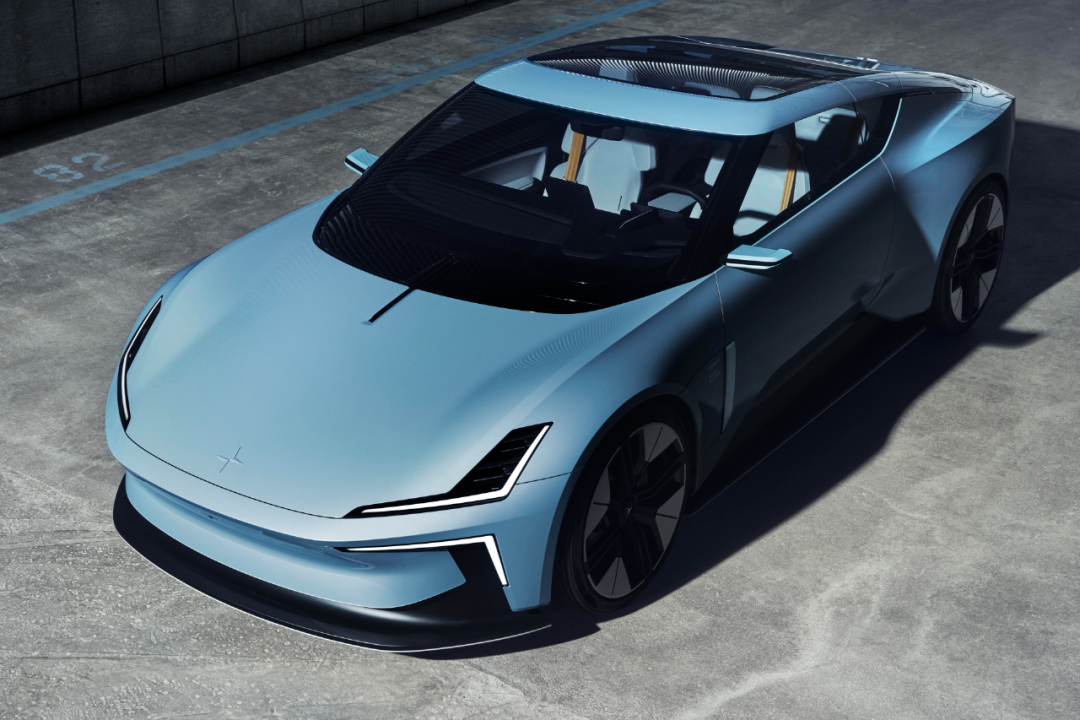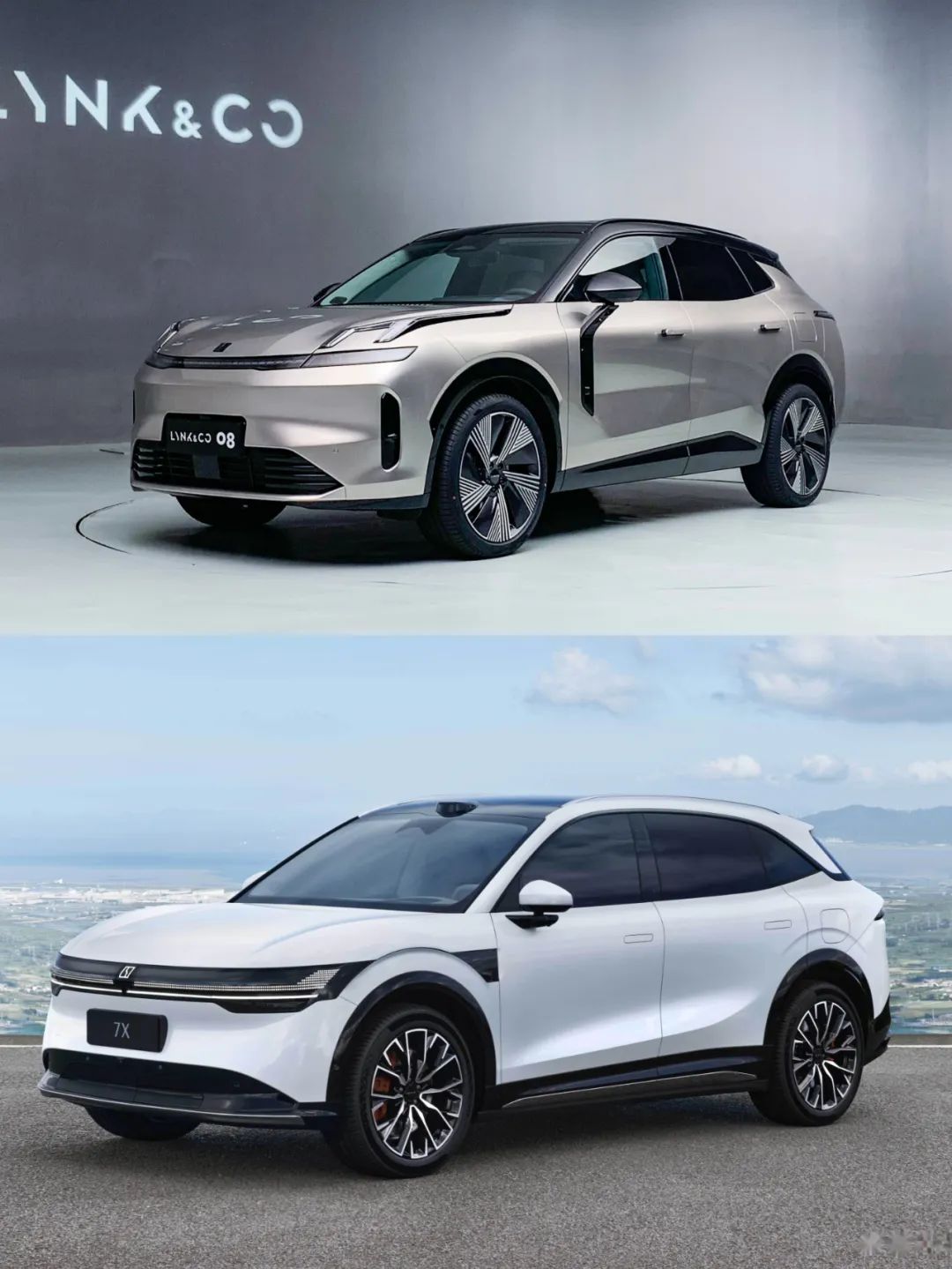Pix Exclusive | Integration Efforts Between Polestar and Zeekr Suspended
![]() 11/28 2024
11/28 2024
![]() 521
521

When Lynk & Co. was integrated into Zeekr, Polestar also began integrating some of its business with Zeekr.
We have exclusively learned that this plan has been suspended.
By Cao Lin
Edited by Mao Shiyang
Original content by Auto Pixel (ID: autopix)
01.
Polestar Suspends Integration
Two weeks ago, on November 14, Geely Holding announced the optimization of the shareholding structure of Zeekr and Lynk & Co., aiming to "rationalize equity relationships, reduce related-party transactions, and eliminate horizontal competition." Subsequently, the two automotive brands began integration at the business level. The initial integration focused on marketing, supply chain, and procurement, followed by a reassessment of the brands' products and R&D.
This is the most noteworthy brand integration in the automotive industry this year and the largest among several integrations within Geely.
The merger is not over. Auto Pixel (ID: autopix) previously learned that almost simultaneously with the merger of Lynk & Co. and Zeekr, Polestar also began preparing for its integration into Zeekr.
A source close to Geely Holding told us that An Conghui would succeed Shen Ziyu as the chairman of Polestar, with the aim of orchestrating the merger of the two brands. Prior to this, An Conghui held three main positions: president of Geely Holding, chairman of Geely Auto Group, and CEO of Zeekr Technology.
A responsible person close to Polestar told us that as early as October this year, Polestar had orally notified employees of the merger. At the same time, business operations on both sides had already begun to overlap, with the integration approach similar to that of Lynk & Co., starting with marketing and other business areas. More specific advancements include: the Polestar sales system recently needing to report business in Hangzhou; and in some adjacent office areas of Polestar and Zeekr, employees on both sides began sharing office resources.

▍Polestar's New Car - Polestar 6
We have exclusively learned that the current merger has been suspended.
Multiple responsible individuals close to Polestar told us that this week, Polestar internally announced the suspension of the merger.
The capital market's reaction to Lynk & Co.'s integration into Zeekr has not been entirely positive. Shares of Zeekr, listed on the U.S. stock market, initially rose but then fell, with a 23.68% drop on November 14, the day the official announcement was made. Another listed company involved in the transaction is Geely Automobile Holdings, listed in Hong Kong, which also experienced three consecutive days of declines, with a maximum daily drop exceeding 8%.
More than two months ago, Li Shufu, chairman of Geely Holding, issued the "Taizhou Declaration," announcing Geely's five core future tasks: strategic focus, strategic integration, strategic synergy, strategic prudence, and strategic collaboration."
In the following two months, there were multiple mergers within Geely. In October this year, the Geely brand within the Geely Automobile Group was merged into Geely Galaxy, and in November, Radar Auto was integrated into the Geely Automobile Group. The latest merger involves Lynk & Co. and Zeekr, with Zeekr set to hold a 51% stake in Lynk & Co., while the remaining 49% will continue to be held by a wholly-owned subsidiary of Geely Automobile. Both brands will continue to operate independently.
Although Polestar is much smaller in size compared to Lynk & Co., the merger between Polestar and Zeekr poses greater challenges and internal controversy compared to the integration between Lynk & Co. and Zeekr.
02.
Greater Integration Challenges for Polestar
Polestar's primary market is overseas. In the first nine months of this year, global sales reached 32,300 units, a year-on-year decline of 22.8%. On February 23 of this year, Volvo Cars announced plans to distribute 62.7% of its stake in Polestar to Geely. This means that Geely will assume responsibility for Polestar's operations and finances. Against the backdrop of the "Taizhou Declaration" emphasizing "strategic focus" and "strategic integration," there has been much speculation about Polestar's development direction.
Like Zeekr, Polestar is an independently listed company on the U.S. stock market. Affected by its own performance and Volvo's divestment of shares, Polestar has performed poorly in the capital market this year, with its share price hovering below $1 per share from May to the end of August. As of November 26, Polestar's share price was $1.10 per share, with a total market value of $2.32 billion.
Compared to the merger between Lynk & Co. and Zeekr, integration may resolve the issue of Polestar's independent development but is unlikely to yield a result greater than the sum of its parts.
An industry insider close to the senior management of Geely told us that the purpose of the merger between Zeekr and Lynk & Co. is clear: to help the two brands allocate resources more reasonably, eliminate internal competition, and enhance efficiency. However, blindly merging Polestar into Zeekr is not only difficult to achieve these goals but may also raise concerns about Polestar's development direction, "fearing that Polestar will become another Radar or Geely, rather than Lynk & Co."
Prior to its integration with Zeekr, Lynk & Co. belonged to the Geely Automobile Group, a second-tier subsidiary of Geely Holding. The current Zeekr brand was originally the new energy vehicle division of Lynk & Co. After Zeekr's independence, Lynk & Co. did not immediately participate in the competition for new energy vehicles.
Since the second half of last year, Lynk & Co. has gradually found its rhythm in the new energy vehicle business, with new models including the plug-in hybrid Lynk & Co. 08, Lynk & Co. 07, the pure electric Z10, and the upcoming pure electric Z20. In the first ten months of this year, Lynk & Co. sold a cumulative total of 226,700 vehicles, a year-on-year increase of nearly 38%.
With its high growth rate, Lynk & Co. began to compete with Zeekr for growth space. A senior executive at Geely told us that the senior management of Geely once hoped to alleviate the potential competition between the two brands, such as urging Zeekr to focus on the high-end market. Last year, during an annual update, Zeekr eliminated the lowest-end version of one of its models, raising the starting price from approximately $28,000 to $29,000, partly in response to requests from Geely's senior management.

▍Lynk & Co. 08 VS Zeekr 7X
This does not solve the fundamental problem as both brands, belonging to different entities, need to compete in the mainstream market. Initially, Zeekr focused on the high-performance market, internally referred to as the Z product line, giving birth to the shooting brake Zeekr 001 and the MPV Zeekr 009. However, starting this year, Zeekr has promoted the C product line, aiming to enter the mainstream market and increase sales, with the introduction of two mid-range new energy vehicles priced around $29,000: the sedan Zeekr 007 and the SUV Zeekr 7X.
Lynk & Co. and Zeekr have many ongoing collaborations in manufacturing and supply chains, and some Zeekr executives have previously worked at Lynk & Co., which reduces the difficulty of integration.
After Lynk & Co.'s integration into Zeekr, a more complete automotive company will be formed. Lynk & Co. will continue to retain its gasoline vehicle business, while its new energy business will focus on compact and mid-range hybrid products, as well as small and medium-sized pure electric vehicles. Zeekr will continue to focus on pure electric vehicles while concentrating its hybrid business on medium and large vehicles.
Although Volvo has downplayed its influence on Polestar, Polestar operates more independently. In January this year, Polestar established an independent R&D center in Nanjing. Currently, Polestar has successively launched models such as the Polestar 4, Polestar 2, and Polestar 3, and plans to introduce a facelifted version of the Polestar 4, as well as the Polestar 5 and Polestar 6.
Polestar's internal atmosphere, business rhythm, and future planning differ from those of Zeekr, increasing the difficulty of integration. An employee at Polestar told us that the work atmosphere at Polestar "is more like a foreign company, more like Volvo."
This article is original content by Auto Pixel (autopix)
Unauthorized reproduction is prohibited







